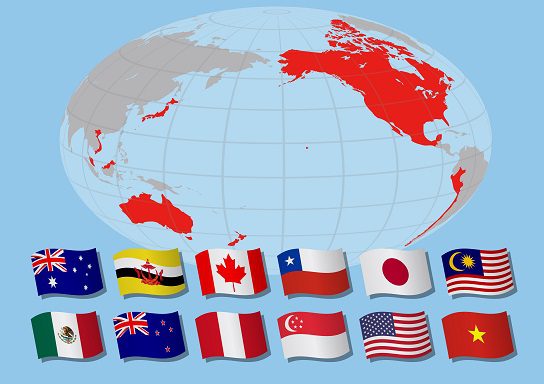TPP Is Dead

We all knew as soon as Trump won that the Trans-Pacific Partnership wasn’t long for this world—in fact, even Hillary Clinton had sworn her opposition to the deal—but now it’s official. From USA Today:
“Everybody knows what I’m about to do,” Trump said before withdrawing from the Trans-Pacific Partnership, a 12-nation trade deal signed by the Obama administration but not ratified by the Senate. “We’ve been talking about this for a long time. A great thing for the American worker, what we just did.”
I wrote a column back in August spelling out the arguments for and against the treaty. Some key excerpts:
Currently, international trade is governed by a patchwork of agreements, including hundreds of bilateral accords in addition to multilateral agreements like NAFTA. The TPP would override much of this infrastructure for the 12 countries party to it, covering a third of global trade with a single deal. An important signatory is Japan, which would substantially change its trade rules under the agreement. (The estimated benefits to the U.S. tripled when Japan joined.) An important non-signatory is China, trade with which has proven an unexpected threat to American jobs.
…
Supporters of the treaty tout a number of potential benefits. Most estimates suggest it could add marginally to America’s economy—somewhere in the general vicinity of 0.5 percent, a small gain because the U.S. already has low trade barriers with most of these countries—and boost exports in industries such as agriculture and manufacturing. If the analysis of the World Bank is to be believed, low-skill wages here will grow 0.4 percent while high-skill wages grow 0.6 percent thanks to the treaty.
…
China looms large as well. If the U.S. spearheads an enormous agreement that doesn’t include China—but does include many other countries in Asia, and takes aim at the “state-operated enterprises” China is fond of—it could set the norms China will have to abide by in the future, the argument goes. If the TPP fails, a different agreement China is putting together with its neighbors will grow in importance.
…
A broad skepticism of free trade also undergirds much of the opposition—the leading concerns being that the U.S. could lose manufacturing and service jobs—and economists are increasingly coming to share some aspects of this skepticism. The expert consensus is still that trade creates wealth on balance. But where economists once minimized the costs of trade—believing the free market would quickly fix any issues it caused—they are coming to see serious problems.
Robert VerBruggen is managing editor of The American Conservative.
Follow @RAVerBruggen
Comments